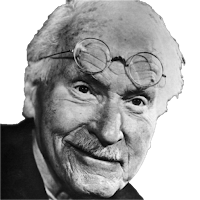Carl Jung, was born in Switzerland, and was one of the people responsible for the creation of what we know today as the modern depth psychology. Jung in his book "Memories, Dreams and Reflections" specifically, the chapter IX, Travels, speaks about his encounters with different countries, different cultures, and his individual and internal journey and dreams. Is necessary to mention, that this book was published after his death, but also, was written almost 30 years after these travels had taken place. Which makes the reader doubt or think that the events are slightly exaggerated, since one can't actually remember with great accuracy the events of that occurred nearly 5 years ago, imagine having to remember or attempting to remember 30 years, some stories may or may not be written accordingly as the events occurred. But nonetheless, Jung with the help journals and memory perhaps, makes a great account of his travels, indulging the reader with his inner personality and the finding of himself during his travels.
Nonetheless, though our dreams, we remember things that were deeply buried with ourselves, or discover new things influenced by what we have lived or are currently living though. With traveling, one opens their boundaries and experiences a lot further, and this is something Jung embraced and wanted to happen, since he wanted to explore that part of him that as "unknown" even to himself. Jung got to see this "unknown" and began to experience it though dreams. Although, Jung's dreams seem to be greatly described, even to uttermost detail, as I mentioned before, since this was written 30 years after the events occurred, some of them may be exaggerated. I personally can't remember most of the dreams I have, and if I can remember them, I just remember parts; and usually remember them when I wake up, as the day goes on, I tend to forget them.
This is why I tend to infer that he kept journals, thus helping remember his dreams better, but it's still not the same. In "Memories, Dreams and Reflections" in chapter IX, Travels , part iii Uganda and Kenya he mentions in this quote: “I took this dream as a waning from the unconscious; it was saying that the primitive was a danger to me. At that time I was obviously all to close to “going black”.” In his journey, Carl Jung saw himself as immersing too far into the country and his unconscious kept on reminding him that he was European, thus impeding himself from actually becoming this “Negro” or “going black” as he mentions in the quote. He as a traveler, he was immersing himself too much into the country, its people and the culture, and wasn’t so sure at what was happening to his inner persona. Thus inferring that he wanted to explore his innermost self, not was scared of turning into something or someone that he wasn't. This is the kind of influence our dreams and our experiences have upon us, although we may not remember them all dreams, up so some extent, they shape us into the person we currently are while having a direct influence from experiences.
"Even a happy life cannot be without a measure of darkness, and the word happy would lose its meaning if it were not balanced by sadness. It is far better to take things as they come along with patience and equanimity."– Carl Jung




I like your post Bianca. A good reflection about Carl Jung's book.
ReplyDeleteCarl Jung had a infernal debat with himself of showing his native culture or the one he was living at that moment. Good post.
ReplyDeleteI tend to think the same myself on how was it humanly possible to have such detail of dreams when even I wake up and think to my self "such an awesome dream, must go ... back ... to ... sleep to relive that precious moment" and after closing my eyes and trying to go back to sleep I think to myself: "what was the dream about again?" Seems that it is hard to keep around a dream journal.
ReplyDelete